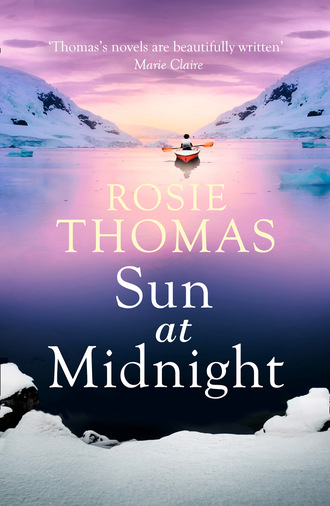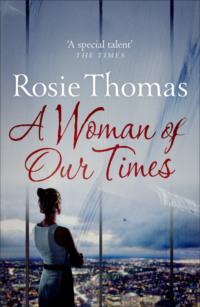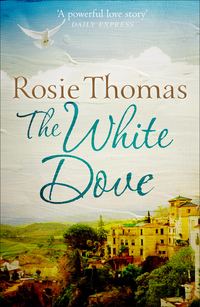
Полная версия
Sun at Midnight
She smiled straight at him. ‘Yes, thanks, I’m fine.’ In fact, she felt sick.
From her office, she called Jo. ‘Are you in? Can I drop in after work?’
‘Of course I’m in. I’m always in. The babies are having a bit of a crap day, though.’
‘I’ll give you a hand.’
Jo and Harry lived in Headington. Alice cycled slowly up the hill, buffeted by the tailwind from passing buses, her legs feeling like bags of wet sand. She rang Jo’s doorbell and leaned against the wall of the porch while she waited for her to come to the door. How many times had she stood here?
Jo opened the door with one of the babies held against her shoulder. She cupped the back of his head with one hand and kept him in place with her chin and forearm. There was a bottle of formula in her free hand. Alice kissed her, smelling baby sick and talcum powder.
‘Come through,’ Jo said. She edged past the double babycarrier that blocked the hall and led the way to the kitchen. The second twin was in a Moses basket on the table. He was awake, his black-eyed stare fixed on the shadows moving on the ceiling above him. ‘Cup of tea? Wine?’
‘I’d love some tea, please,’ Alice said. She didn’t think she could keep a glass of wine down although she would have welcomed the bluntening effect of alcohol. ‘Can I hold him?’
Jo handed the baby over at once. He frowned and squinted up at Alice, who knew that she handled him with that stiff, alarmed concentration of the utterly unpractised. He responded by going stiff himself and puckering his face up, ready to start crying.
‘Here, plug this in,’ Jo said, handing over the bottle of formula. Alice poked the rubber teat into the baby’s mouth and he began to suck. She eased herself into one of the chairs at the kitchen table, the Moses basket and a packet of Pampers and a pile of baby clothes at her elbow. Through the open doors into the garden she could see leaves and the ragged, dirty-pink globes of mophead hydrangeas. Getting into his stride, the baby snuffled and sucked more vigorously.
‘How are you?’ Alice asked and Jo half turned from the sink. She looked, as she so often did nowadays, on the verge of tears.
‘I’ve had to start bottle-feeding in the last couple of days. I just can’t go on feeding them both myself. This way, they sleep a bit longer between feeds and I can sometimes get as much as two hours myself.’
‘That’s much better, isn’t it?’
Jo nodded, but without seeming convinced. She wanted to be a good mother, as well as a good girl, and that meant breastfeeding. Alice knew this without Jo having to say as much.
‘Look at me, Ali,’ Jo said quietly.
‘I am looking.’
She was wearing a shapeless shirt under which her breasts swam like porpoises. Her skirt hem hung unevenly and revealed pale calves and unshaven shins, and her pretty face was drawn. Alice thought she looked older but there was also a new solemnity about her, an extra elemental dimension that added greatly to her appeal. Even in her weariness she was sexier than she had ever been before her pregnancy.
‘Sometimes I think that no one ever looks at me now, even Harry. I’m an invisible appendage. I have no function except as a machine for feeding and wiping and tending Leo and Charlie. I’m just a mother. I want to be myself, but I can’t even remember what I was like before this happened.’
‘You are yourself. Only more so. This time will pass.’
Alice wanted to put an arm round her friend, but she was pinned down by the baby she was nursing. And this was only one of them, for a few minutes. When she looked out into the garden again she saw how narrow the view really was. Jo had told her how long it took to get both babies ready to leave the house, even for a walk to the shops. What must it be like, to think that the world had shrunk from its infinite breadth to the four walls of a house and a square of suburban garden?
‘It’s only twelve weeks since they were born. They’ll grow up and start running around.’ With the present helpless morsel of humanity in her arms, Alice realised how very far in the future this must seem.
Jo sighed. ‘I know, of course they will. It is getting better, too. Remember at the beginning when some days I didn’t even find time to get dressed? I’m sorry, Al. I don’t mean to complain. I’m just sounding off because I’ve been here on my own all day. I wanted them so much and I do love them. I didn’t even know what loving meant before I had them.’
She put a teapot and two mugs on the table.
‘Which one is this?’ Alice asked sheepishly.
Jo laughed. ‘Leo.’
‘I’m sorry. I’ll learn to tell them apart.’
‘Don’t worry. Even Harry gets it wrong half the time. D’you want some toast or a biscuit or something? ’Fraid I haven’t made a Victoria sponge.’
Alice shook her head quickly.
Jo eyed her, then sat down next to her at the table. ‘What’s up?’
‘It’s Pete.’
‘Go on.’
Alice told her. While she was talking Leo’s eyelids fluttered and then closed. His gums loosened on the bottle teat and a shiny whitish bubble swelled at the corner of his mouth.
‘I’m sorry,’ Jo said at the end. ‘And I’m sorry for going on and on about my problems without giving you a chance.’
‘You didn’t. You never do that.’
There was a moment of quiet in the kitchen. Both babies were asleep, and the oasis of calm silence was more notable and the more precious because it would last only a few minutes. Jo’s face went smooth and luminous as she stared peacefully into the garden. Alice’s sympathy for her twitched into sudden envy and she bit her lip at the realisation.
She said, ‘The thing is, I’m not sure that Georgia is the only one. Now I’ve seen this much, all kinds of other details seem to be falling into place. Pete’s so evasive and maybe I’ve been convincing myself that it’s just because he’s an artist, needs space, can’t be tied down. When he doesn’t come home in the evenings, when he goes off to Falmouth or London or Dieppe for days at a time, I just get on with my work and feel pleased about how…how separately productive and mutually in accord we are. In fact, he’s probably got half a dozen women on the go, hasn’t he?’
She started on a laugh to distance herself from this possibility and then a flicker in Jo’s eyes made the laughter stick in her throat.
‘What do you know? Jo, please tell me.’
Jo hesitated. ‘Harry saw him one night. In a pub near Bicester.’
‘Everyone goes to the pub, Jo. Quite a lot of Pete’s working life seems to take place in them, in fact. What does he call it? Necessary inspiration?’
But when Jo said nothing Alice felt the last of her defences crumbling. Was I happy? she wondered. Or was I just determined to be? ‘Go on,’ she said miserably.
‘Pete didn’t see him, because he had his tongue down some woman’s throat at the time. That’s how Harry put it. He said they didn’t look as if they were going to get as far as the car park before they…well. I’m sorry, Al. I’m so tactless. I’ve forgotten how to talk to real people, haven’t I?’
‘Was it Georgia?’
‘It didn’t sound like her.’
‘No. I see.’
In the Moses basket Charlie stirred and gave an experimental whimper. Jo said, ‘It’s coming up to his lively time. He’ll be awake now until about ten. I thought you sort of knew about Pete and that was the way you chose to handle it. Knowing and not knowing.’
‘Perhaps,’ Alice murmured. Humiliation made her want to bend double, as if she had a stomach-ache.
‘You deserve better,’ Jo observed, lifting Charlie out of his basket as full-scale crying got under way. She rocked him gently, shushing him softly.
‘Perhaps,’ Alice said again.
‘Do you love him?’
Yes, she loved him. Or was it actually the idea of him that she loved, the concept of Pete? Not just the illusory domesticity that they had enjoyed, but the very way his disarray and lack of precision had made an anarchic foil for her own selfimposed orderliness?
Perhaps that was it. His work, his pieces of sculpture, were only just on the right side of giant rubbish heaps. (Of course they are, he would say. It is all a metaphor for our world. Arbitrary arrangements scraped together in a disintegrating society, drowning in its own discarded refuse. Or something like that. She never had quite mastered the language.) Whereas she had grown up with Trevor, sitting on a sun-warmed stone and watching her father frowning and scribbling stratigraphic measurements in his notebook. She had loved the names of the rocks. Gabbro and dolerite and basalt. The earth’s apparent solidity and her father’s dependability had somehow fused into a reassuring constant. It was only much later, as a geology student herself, that she began to appreciate the immense scale of the earth’s restlessness. And now, in her mid-thirties, as the balance of power between them shifted and her parents grew frailer, and as Pete’s shape shifted, her notions of what was solid and dependable were all being overturned.
‘I don’t know,’ she told Jo now. The realisation that she truly didn’t know shocked her.
‘What will you do? Tell him to behave or else?’
‘It’s a bit late for that. I was going to ask if I could stay here until he’s moved out?’
They were both holding a baby. The sun had moved off the garden and the light was fading.
Jo said immediately, ‘Of course you can.’
Alice made pasta for dinner while Jo bathed the babies and fed them again. Harry came home, his face creased from the day, and they juggled the wakeful twins between the three of them while they ate. Pete rang Alice’s mobile every half-hour, but she didn’t take the calls. He rang Jo and Harry’s number too, and Harry did pick up the phone.
‘Yeah, she’s here. But I’d leave it for a while, mate, if I were you.’
The calls stopped after that. Before she went to bed Alice spoke to her father in the hotel in Madeira. ‘Is she feeling any better?’
‘The doctor called in again. He’s been very good. We think she might be better off at home, you know, so we’re going to take a flight tomorrow. All being well, that is.’
‘Can you put her on?’
Alice put the flat of her hand against the wall of Jo’s spare bedroom, wanting to feel its solidity.
‘It’s very annoying,’ Margaret said into the phone. The words were hers but her voice was almost unrecognisable, falling between a whisper and a sigh.
‘You’ll be fine. Once you’re home. A couple of days and you’ll be yourself again.’
‘Will I?’ She asked the question as though she were a child.
‘Yes,’ Alice said with a tremor in her voice.
In their bedroom, Jo and Harry undressed for bed. One baby was asleep, the other cried every time Jo put him down. They would alternate this routine throughout the night. If he had to work the next day Harry usually slept in the spare room, but tonight Alice was in it. Jo walked up and down, rhythmically rocking the baby against her, willing him to fall asleep.
‘She’s very precise. Not detached, or unsentimental, not exactly. But she doesn’t waver, or change her mind. If she’s decided it’s all over with Pete then it’s over.’
Harry took off his socks, balled them up and aimed them towards the laundry basket. ‘Yes? Probably for the best, then.’
‘Maybe. I don’t know, though. She seemed happy with Pete. He countered that precision in her. Made her more spontaneous.’
Harry lay down and closed his eyes. ‘Are you going to get into bed?’
Jo smiled, sat down on the edge of the bed and swivelled so that her back rested against the headboard, trying at the same time not to interrupt the rocking. She wanted to talk to Harry now, piecing together the day’s events and impressions. Just for ten minutes, before she entered the hushed tunnel of another night when every living thing seemed to sleep except for herself and one or both of the babies.
‘Al’s my best friend. But sometimes I think I don’t know her at all. I mean, I’ve never even glimpsed it, but beneath all that cool logic there might be a wild heart beating. Don’t you think?’
There was no answer. When she looked at him she saw that Harry had plunged into sleep.
Alice went home for a change of clothes. Pete had been there, she could tell from the crumbs on the counter and a single plate and knife in the sink, but there was no other sign. There was no note and she thought that most of his belongings were still in their accustomed places. She registered this much, then dismissed the thought. The latest telephone conversation with Trevor had left a hard knot of anxiety in her chest. Margaret had had a bad night and was suffering breathing difficulties. There was some doubt about whether she would be able to fly home at all, although she was still insisting that this was what she wanted. Alice said to her father that she would meet them at the airport but Trevor told her that he had arranged a private ambulance. Margaret would be driven straight from the airport to hospital.
‘We’re probably being overcautious. But there’s no harm in that, is there?’ he said.
‘No. Of course not. I’m sure,’ Alice answered. They had somehow entered a conspiracy of matter-of-factness, in which they both pretended that this was a routine way of ending a holiday.
The flight left, with Margaret and Trevor on board. It was too early yet for Alice to think of going to the hospital to meet them. She washed Pete’s plate and knife and put them away, then walked through the house. It felt slightly unfamiliar, as if she had been away from it for much longer than one night. The arrangements of crockery in cupboards and books on shelves seemed irrelevant, as if already viewed through the distancing membrane of history.
After an hour she couldn’t bear the house’s silence any longer. She locked the front door and went to the Department. A few minutes after she arrived Professor Devine put his head into her office with a question about the minutes of the budgeting meeting. She told him about Margaret and he took off his glasses and replaced them again, a sign of dismay that she knew was habitual without ever having been aware of it before. Everything around her had a lurid clarity that balanced on the edge of nausea.
‘If there is anything Helen and I can do, anything at all,’ the Professor mumbled.
She isn’t dead, Alice thought, while she was gravely accepting his statements of concern. She isn’t going to die.
Eventually, after a long time, Trevor called again. They were in the ambulance. Margaret had taken a turn for the worse on the flight. He didn’t any longer try to suggest that there was nothing to worry about. Their conspiracy now was about getting Margaret to hospital with all speed.
‘I’ll see you there,’ Alice said. She left her office and drove to the hospital, and found a seat in the A&E waiting area. People flurried past her or sat and gazed into space. An ambulance with its blue light lazily flashing arrived under the canopy. The steps at the rear were unfolded but it was a young woman carrying a baby who was helped down and hurried through the doors. Another half-hour dragged by before a long white car with blacked-out windows drew up. A stretcher was rolled out of the back and lifted on to a trolley. Alice glimpsed her mother’s white hair on a blue pillow. She left her seat and ran in pursuit.
Margaret’s eyes seemed twice their normal size. Her face was a parchment triangle that looked too small to contain them and there were purple marks like fresh bruises showing through the skin. She was breathing in fast, shallow gasps. Her hand moved just perceptibly under the red blanket that covered her, and Alice slid her own underneath and took hold of her cold fingers.
‘It’s all right,’ she said gently and the memory came back to her of Trevor using exactly the same intonation when she woke up from some childish nightmare. ‘It’s all right now.’
Margaret’s eyes remained fixed imploringly on hers.
Medical staff crowded into the cubicle. Alice and Trevor retreated together to a short row of chairs. They could see feet and ankles and rubber wheels and metal protruberances beneath the curtain hems of the cubicles facing them. Trevor’s cardigan was buttoned up wrongly, with one button spare at the chest vee and another unmatched over the small swell of his stomach. His white hair stood out round his head and Alice wanted to smooth the wrinkles of freckled skin where it suddenly seemed too loose for his skull.
‘The flight,’ he murmured. ‘I thought…’ His eyes travelled to where Margaret was lying. He had thought that she was going to die. Having seen her mother, the fear didn’t seem irrational to Alice.
‘The doctor will tell us everything.’ It was important to get information and to act on it. She took his hand and found that it was trembling.
She sat still, holding her father’s dry hand and waiting. The hospital setting was completely unfamiliar to her. She had hardly ever been inside one before today. None of them was ever ill. A sheltered life, she thought, aware of it sliding into the past tense. She pressed the soles of her shoes to the mottled grey floor, wondering how it remained motionless when everything was shifting.
At last a doctor came to find them.
‘Mrs Peel almost certainly has a form of pneumonia,’ she said. ‘We are X-raying her now and we’ll do some blood tests.’
Under her married name Margaret sounded like a stranger, Alice thought. She was always Margaret Mather, yes, the Margaret Mather…
‘Can I go to her?’ Trevor asked. There was suddenly a pleading note in his voice. Anxiety scraped away his reserve. It occurred to Alice that she had never been properly aware before of how deeply he loved Margaret. She felt like an eavesdropper outside the walls of her parents’ marriage.
‘We’ll stabilise her first. It’s a matter of making her comfortable.’
They went back to the row of seats and waited. Alice let her father sit quietly. A teenaged girl with her leg propped in front of her was pushed past in a wheelchair. She was wearing school uniform, the navy-blue and cerise of Alice’s old school.
Once, Alice remembered, when she was eleven or twelve, Margaret had come to talk to the school to show one of her celebrated films. She stood up on the stage in the hall beside the rectangle of white screen unrolled in readiness by Mr Gregory, the biology teacher. Her neat navy-blue suit was unremarkable, but she wore it with a pair of stiletto-heeled shoes. The sunlight flooding in from the big window behind her made her hair glint like silver mesh.
‘I am going to take you all on a journey,’ she said. ‘To one of the most remarkable places in the world.’
The blinds were drawn and the lights dimmed.
The film’s images were already familiar to Alice. There were the rookeries of Adélie penguins on rocky headlands of the Antarctic peninsula. Thousands of birds seethed on a narrow rock margin between mirror-silver sea and steep walls of ice and snow. The intense chirring sound made by the birds swelled and filled the hall.
Margaret and her assistant moved through the dense colony, counting the eggs and the chicks. The chicks were newly hatched and the schoolgirl audience gave a collective aaah at the first close-up of a beaky ball of silver-grey down. Margaret stopped the film and continued her crisp commentary.
‘The Adélie breeding season is short. Females lay two eggs apiece but only about sixty per cent of Pygoscelis adeliae chicks reach the crèche stage at the age of three weeks.’
The film started up again and the blunt arc of a brown Antarctic skua swept out of the whitish sky and dived on a chick at the edge of the colony. The morsel of fluff was swallowed whole, head first. For a fraction of a second the tiny feet were visible in the slit of the skua’s bill. The sentimental tendency of the audience dissipated after that.
There were shots of penguins flipping out of the sea between the ribbed flanks of icebergs, like dozens of tiny missiles, intercut with footage of the birds cruising underwater through the spinning maze of krill. Alice knew that Margaret hadn’t used an underwater cameraman; she had dived down into the ice-bound sea to film all this herself. She wanted to nudge her neighbour and tell her so.
‘Adult birds fish for krill, Euphausia crystallorophias in the main, in the rich waters around the continental edge.’
Margaret paid her audience the compliment of never talking down to them and she also had the knack of making them feel that she was sharing the complete experience. Her film included personal footage that was never shown on television. In one sequence she was cooking on a small stove outside her little orange pyramid tent. Her red protective suit and the tent made a dab of colour in an immense blank sweep of white and cobalt blue. In one close-up she looked over her shoulder and laughed straight up at the cameraman. Strands of her pale hair blew across her cheek and stuck there, seeded with ice. Alice drew her knees up against her chest and shivered, as if she were out in the ice herself.
The applause at the end was loud. Mr Gregory came back up on to the stage and thanked Dr Mather for coming to talk to the school. Margaret stood beside him, even in her heels barely reaching up to his shoulder. She looked straight out into the audience and she appeared to be made of different materials and coloured more brightly than the biology teacher or the headmistress who was beaming on her other side. Alice realised now that that was the moment when she understood how sexy her mother was. Margaret was then in her fifties.
Margaret had another lecture to give after her talk to the school and she drove herself away straight afterwards in her green Alfa Romeo with the dented rear wing. Alice was surrounded by a group of girls.
‘Your mum’s rather amazing,’ Becky Gifford said. Becky’s own mother was a television actress, and Becky was the most sophisticated and confident girl in Alice’s year. She had never noticed Alice before.
‘She is a scientist,’ Alice answered, wanting to make clear that that was what was most important.
‘So are you going to be one as well?’
‘Yes,’ Alice told her.
It was probably true, Alice thought, that she owed her friendship with Becky to Margaret and that day.
A nurse came and stood in front of their chairs. ‘You can come and sit with her now,’ she told them. ‘Could you pop these on first? They do up at the back.’ She handed them a blue paper gown apiece. In silence, Alice and Trevor helped each other into the crackling shrouds and did up the ribbon ties at the nape of the neck.
Margaret had been moved to a different cubicle, a glassedin alcove to the side of the department. Beyond the glass partition three other trolley beds had also been drawn up. She was propped up on pillows with a clear plastic mask held to her face by an elastic loop. The mask looked too big for her, as if it might envelop the bones of her jaw and cheek. An intravenous tube was taped to her arm. Her eyes, wide with alarm, fixed on them as they approached.
‘Here we are,’ Trevor said. They moved one to either side of her. The bed immediately beyond the glass was occupied by a young Asian man, lying flat on his back with his eyes closed. ‘Here we are now,’ Trevor repeated.
Alice glanced around and saw a chair across the corridor. She carried it over and placed it for Trevor to sit down. He folded abruptly into it as if his legs were about to give way. He leaned to put his hand on Margaret’s arm and she turned her head to see him better.
After a while she drifted into sleep.
The time passed, minutes divided from minutes by the slow sweep of the second hand of the wall clock directly in Alice’s sightline. She brought her father a bottle of water from a vending machine, but he wouldn’t leave his place for long enough to eat anything.
A nurse came every half-hour to check Margaret’s pulse and temperature. The close-quarters bustle and clattering of the emergency department seemed to reach them through thick layers of close air. The young Asian man was wheeled away by a porter in green overalls and his place was immediately taken by an older man who looked around him in mournful bewilderment. The evening seeped away. Alice thought of the chains of car headlights outside on the bypass and of busy people on their way to somewhere familiar, at the end of an ordinary day.









